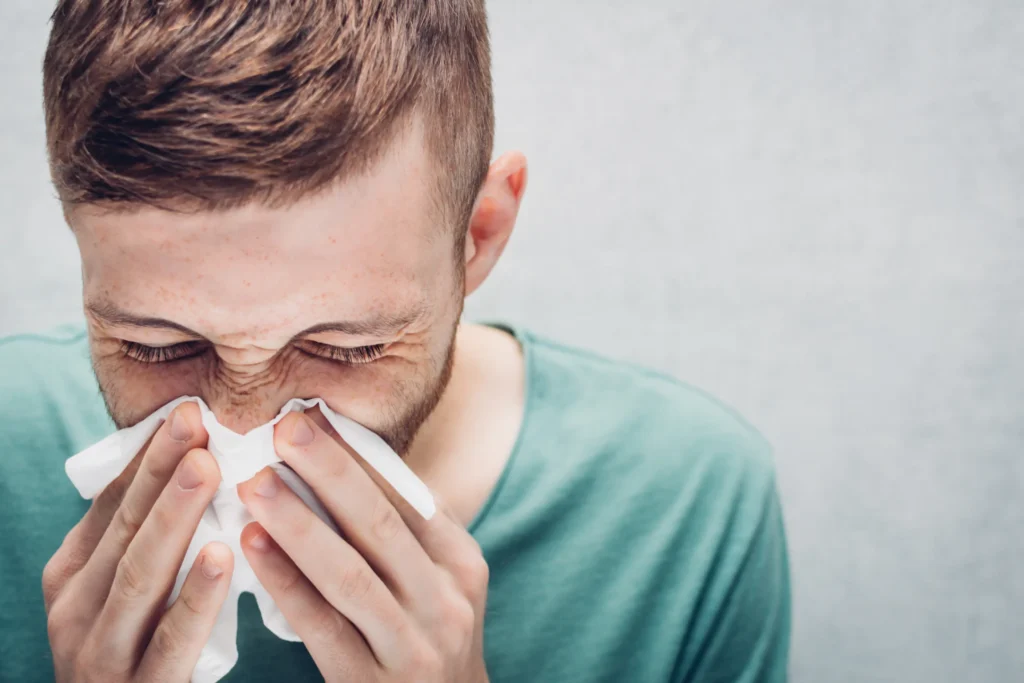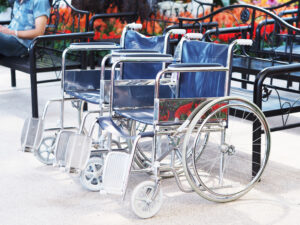New Jersey is renowned for its beautiful, lush landscapes, especially between the spring and summer seasons.
However, this does not come without its challenges, with the main one being seasonal allergies. From pollen produced by blooming trees and flowers in the spring and grass in the summer to indoor pollutants and humidity in winter, New Jersey residents suffer seasonal allergies.
Unfortunately, there is no known cure for allergies; the only option is to manage the symptoms. This article gives various tips for managing New Jersey seasonal allergies.
Consulting an Allergist
Since you may not eliminate allergen exposure, it means you will experience the symptoms from time to time. In cases where management tips are not feasible or do not bear meaningful results, consulting an allergist can be a long-lasting solution.

Seasonal allergy and how to deal with it
Given their deep understanding of the different triggers and effects, allergists offer personalized treatment according to the various health needs of different patients. If the OTCs you are currently using have not been effective, they can adjust the dosage or alter the medication to stronger ones to suit your unique needs.
Medication and Treatment
Usually, most allergies disappear after a short while if the exposure is not sustained. However, due to variations in genetic predisposition and physiological makeup, some people may experience more severe symptoms than others for the same form of allergy. When the symptoms do not disappear on their own, the next course of action should be to buy medication, which includes OTC antihistamines like Claritin. Some antihistamines come in the form of nasal sprays to reduce nasal inflammation and blockage. Alternatively, you can get eye drops for itchiness and teary eyes, which are major allergic symptoms.
Monitor Pollen Patterns
Given that most New Jersey seasonal allergies come from heavy pollen produced by landscape trees and flowers in the spring and grass in the summer, not much can be done about that. However, did you know you can monitor pollen patterns and take preventive measures beforehand? By checking news, forecasts, and blogs such as Pollen.com, you can track the pollen patterns and take advantage of the season to go on a vacation. This is because if we suffer adverse reactions, the situation might worsen with the increase in pollen concentrations in summer when grass, too, starts flowering.
Indoor Air Quality
After the blooming seasons of spring and summer then comes the low temperatures that confine you indoors. Just when you think you are out of the woods, you start sneezing and itching again and now are wondering what could be happening. What you may not be aware of is that some dust may have collected in the vents, and upon turning on the AC, the trapped pollens settle on your surfaces. The situation becomes even worse if there are humidity issues, as the effects will get more severe due to prolonged confinement indoors. To combat this challenge, consider addressing moisture issues, vacuum the rags and carpets more often, and clean and replace the filters often.
Reducing Outdoor Exposure
We can all agree that it is a painful thing to miss the outdoor fun that comes with the spring and summer seasons. One would argue that confronting the challenge head-on is the most effective form of addressing it. While that couldn’t be further from the truth, you, too, can enjoy the outdoor fun of pollen-filled seasons by wearing a nose mask when doing outdoor activities like gardening, mowing, or exercising. Another tip for reducing pollen exposure is by sticking indoors. And while you are there, remember to vacuum the carpets, dust the surfaces, and turn on the AC instead of opening windows, as the outdoor atmosphere is pollen-filled.
Lifestyle Adjustments
It is worth noting that even with all precautions and exposure measures, some bits of pollen will still find their way into your confines after sticking on shoes and pet hairs. With that in mind, consider changing bed linens frequently to prevent accumulation. Adopt a habit of leaving shoes by the door and changing your clothing immediately after setting foot into the house. Then remember to vacuum and dust the house regularly, not just during the pollen season, but always.
From irritable throat, runny nose, itching and teary eyes, and sneezing, New Jersey seasonal allergies can wreak havoc if management hacks are not taken early enough. Fortunately, the majority of the reactions are manageable through the above-discussed tips. You can control the effects associated with seasonal allergies by exploring the various OTC antihistamines and consulting an allergist, as these can tailor your treatment to your unique health needs.




